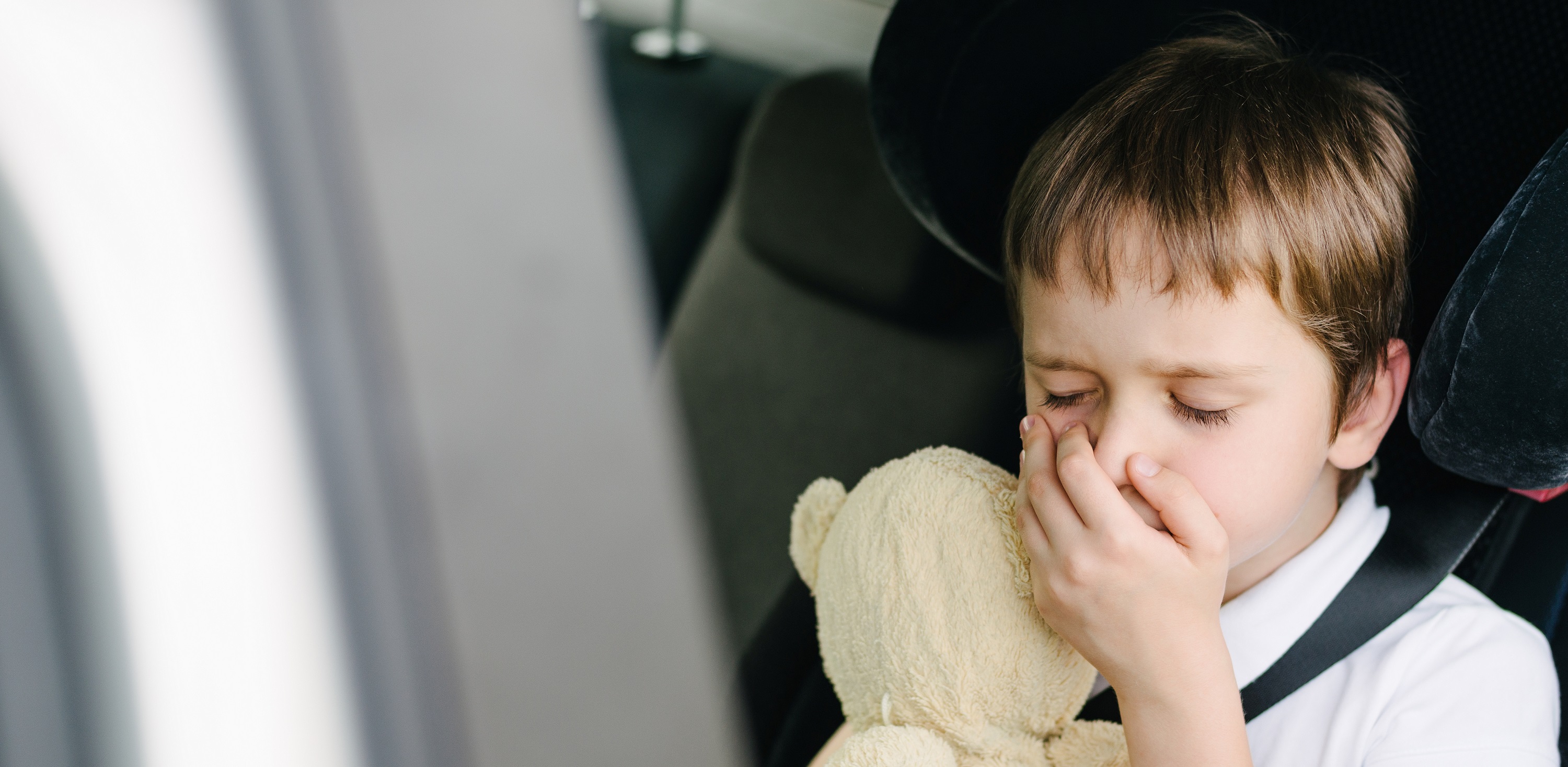Five tips to avoid getting car sick
06 December 2022
As we head into summer we can finally make the most of the long weekends and explore the winding roads that lead to some of the most beautiful areas of the country. However, the downside of this is that road trips can make some people feel unwell.
Travel sickness is something almost everyone will experience at least once during their life, and it’s safe to say it certainly isn’t pleasant, especially on a summer road trip.

Travel sickness is caused by sensory confusion - your eyes and inner ears get conflicting signals about the movement going on around you, much like the sensation you receive when you’re spun around in a circle. When you’re in a closed space such as a car, you tend to focus on objects inside of the vehicle. Your eyes tell your brain the environment is stationary, but your balance organs say it is not.
Because it’s easier to prevent motion sickness than to deal with its symptoms in the moment, we have put together five tips to help avoid it completely.
1) Eat right
Travelling on an empty stomach can increase the chance of sickness, so make sure to eat something light about 45-60 minutes before you set off. If you’re planning to be on the road for a long period of time, pack some snacks that are low in fat and acid – we all know how tempting it is to pop into the bakery or petrol station and fill up on greasy goodness, but these fatty foods are known to cause nausea or worsen travel sickness. Spicy foods should also be avoided.
2) Choose the best seat
If you can – offer to drive. Drivers are less likely to suffer from motion sickness because their focus is firmly fixed outside on the road ahead, rather than objects close by.
Passengers prone to travel sickness should sit in the front whenever they can. As for children, try to give them a good viewing point, so they can look out of the window.
3) Avoid reading
Focusing on something up close while travelling has been known to cause nausea; whether you’re reading a book, checking your horoscope or mindlessly scrolling through social media on your phone. Instead of staring down, try to keep your sight fixed on the beautiful NZ scenery outside.
Rather than giving your children a cellphone or tablet to keep them entertained, try to entertain them in other ways such as the classic car games (I spy with my little eye), music or even podcasts.
4) Keep it fresh
Strong scents such as perfumes or car fresheners are likely to make you feel worse. Like we mentioned earlier, avoid eating smelly snacks and try to keep the vehicle as odourless as possible.
Stuffy, hot conditions can also have an impact on travel sickness. Even on cold mornings, avoid making the cabin excessively hot with the heater, especially on recirculated air. Slip the windows open when you can and get fresh air circulating the cabin. And of course, there’s no better fresh air than the air outside, so take some breaks along the way and stretch your legs.
5) The magic pills
Preventing travel sickness is much more effective than attempting to treat symptoms once they’re in full swing. Travel sickness tablets like Sea-legs are available over the counter and are specially formulated to provide relief whether travelling by car, boat, plane or bus. Antihistamines, such as cinnarizine and cyclizine, can also help. If you're the one doing the driving however, be warned that some products can make you drowsy and always consult a doctor before taking medication. For those who prefer a more natural option, you can try ginger tablets or wearing acupressure bands on your wrists.
How can the AA can help with my next road trip
- AA Auto Centre - aa.co.nz/autocentre
- AA Roadservice - aa.co.nz/roadservice
- AA Travel - aa.co.nz/travel
- AA Shop - aa.co.nz/shop
- AA Insurance - aa.co.nz/insurance
- AA Auto Glass - aa.co.nz/autoglass
- AA Membership - aa.co.nz/membership
Vehicle experts you can trust

